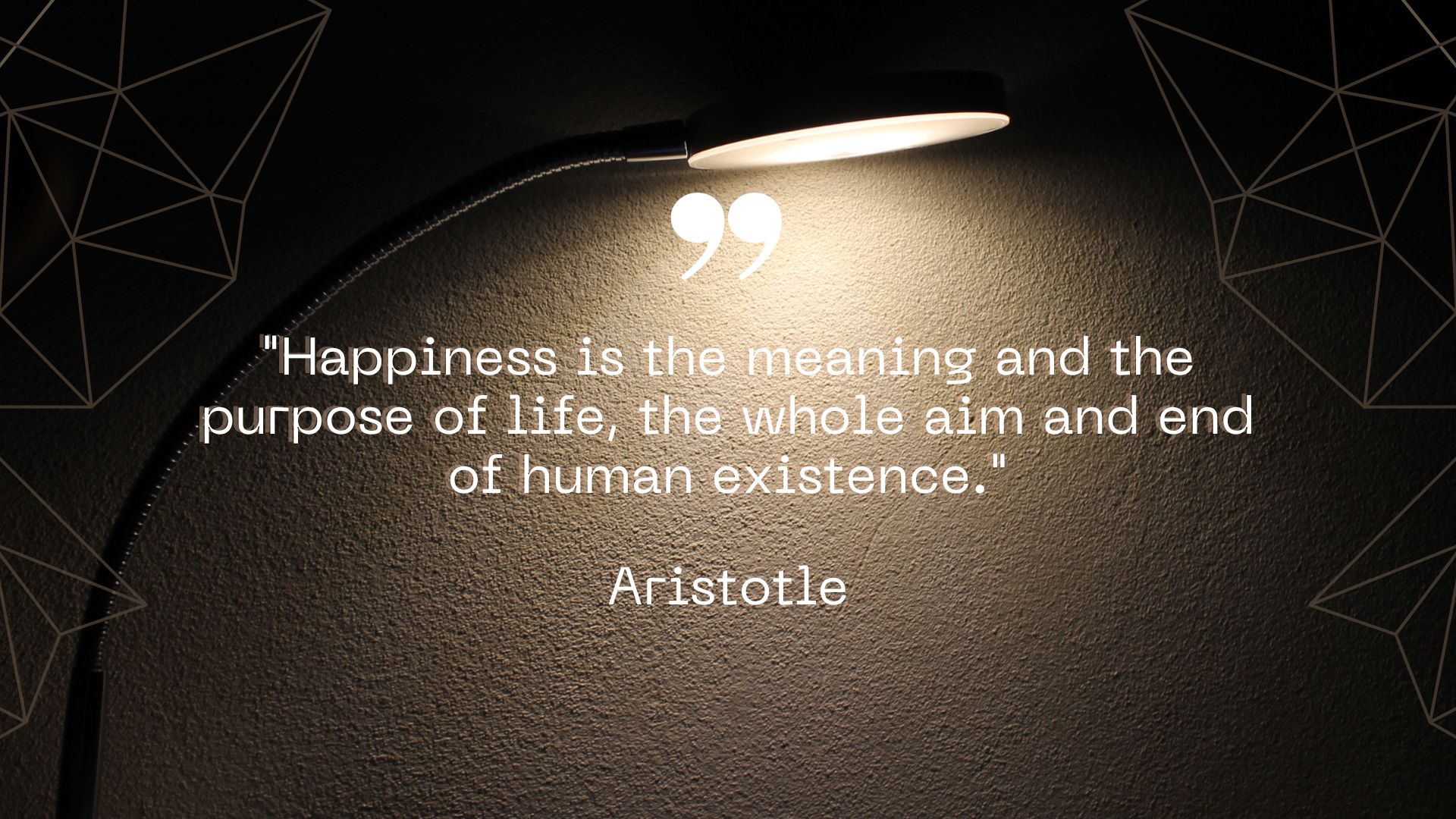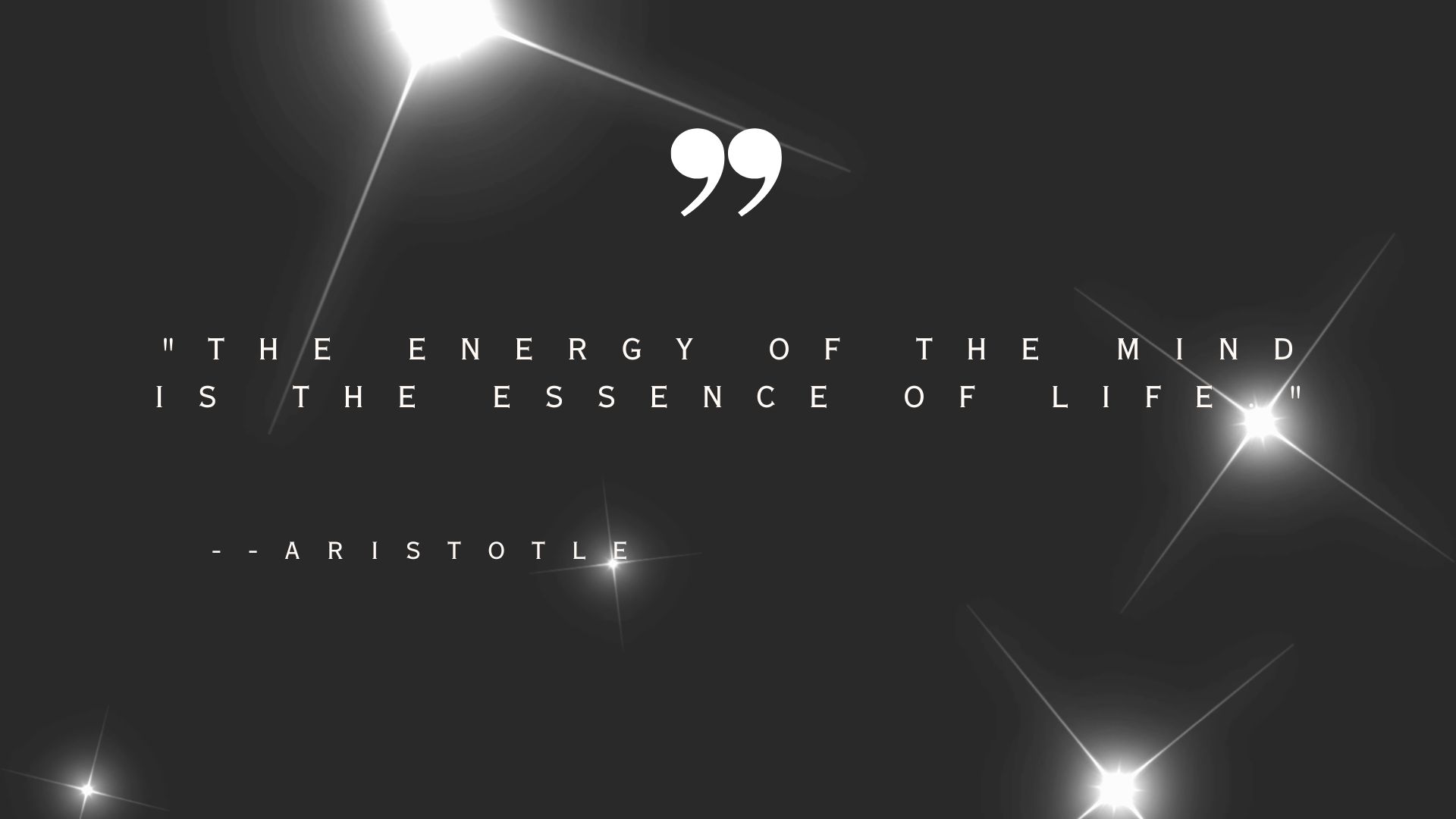“Happiness is the meaning and the purpose of life, the whole aim and end of human existence.”
Aristotle–
Aristotle’s Philosophical Insight Aristotle, a renowned ancient Greek philosopher, has left an indelible mark on the realm of philosophy with his profound observations on the nature of human existence. Among his many philosophical ideas, the assertion that “Happiness is the meaning and the purpose of life, the whole aim and end of human existence” stands as a cornerstone of his ethical framework.
Unveiling the Core Notion of Happiness: Eudaimonia At the heart of Aristotle’s quote lies the concept of eudaimonia, a term often translated as ‘happiness’ or ‘flourishing.’ However, Aristotle’s understanding of happiness transcends mere pleasure or momentary contentment. Eudaimonia encompasses a deeper, more profound state of well-being, a harmonious flourishing of one’s potential, virtues, and character.
The Quest for Fulfillment: An Inherent Human Drive Aristotle’s assertion hints at a fundamental human inclination – the pursuit of happiness. He suggests that this pursuit is not only a desirable endeavor but is, in fact, a central driving force inherent in every human being. In this context, life’s meaning and purpose become intertwined with the journey toward attaining genuine and lasting happiness.
The Ethical Framework: Virtue and Reason Aristotle’s philosophy underscores the significance of cultivating virtues as a means to achieve eudaimonia. Virtues, such as courage, wisdom, and justice, enable individuals to navigate life’s challenges and make ethically sound decisions. Moreover, Aristotle emphasizes the role of reason in guiding actions and choices, underscoring the importance of aligning one’s behavior with rational principles to achieve true happiness.
A Holistic Perspective: Balancing Pleasure and Purpose Contrary to the pursuit of hedonistic pleasures, Aristotle proposes a holistic approach to happiness. He acknowledges the role of pleasure and enjoyment in human life but cautions against their excess. Instead, he advocates for a balanced life where pleasures are pursued in harmony with virtues and guided by reason, ensuring a deeper and more sustained sense of well-being.
The Telos of Human Existence: Ultimate End and Purpose Aristotle’s assertion implies a telos – an ultimate end or purpose – for human existence. This telos is none other than the attainment of eudaimonia. In this view, the culmination of a well-lived life is not measured by material wealth or fleeting experiences but by the extent to which one has achieved genuine happiness through the development of virtues and the fulfillment of their potential.
The Ever-Relevant Pursuit of Happiness Aristotle’s profound insight continues to resonate through the ages, reminding us that the pursuit of happiness is not a fleeting or trivial endeavor. Instead, it is the very essence of human existence, guiding us to strive for the highest expression of our capabilities and virtues. As we navigate the complexities of life, Aristotle’s wisdom encourages us to embrace a holistic approach, where reason, virtue, and a balanced pursuit of pleasure converge to lead us on the path towards profound and enduring fulfillment.




